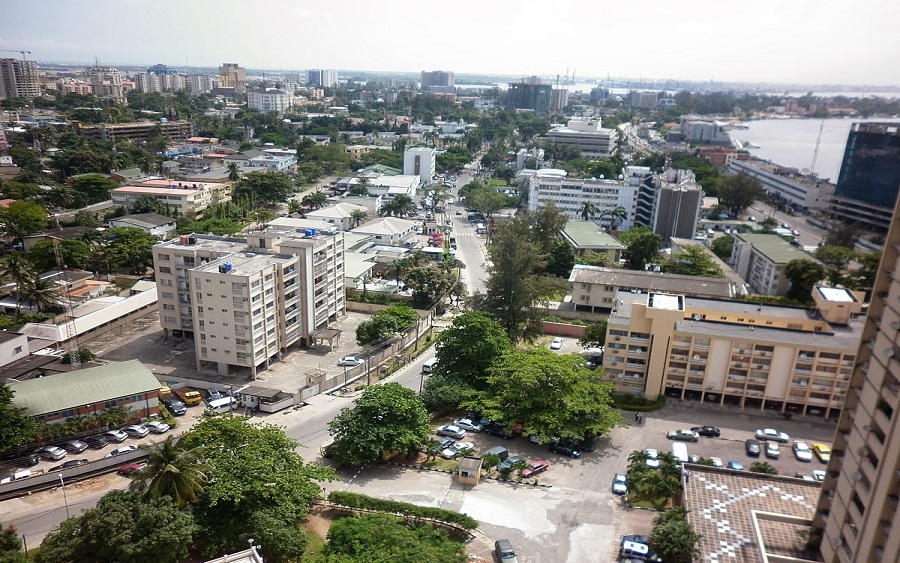The effect of the Coronavirus pandemic is telling on the Real Estate sector, as many occupants have requested moratoriums from property owners or managers.
In separate interviews, some tenants told Nairametrics that they could no longer afford their rents, hence the need for moratoriums. If denied, a lot of them are ready to move to border towns of Lagos.
READ: Bank’s Credit to Nigeria’s Real Estate sector hits 5-year low
A moratorium is a legal authorization to debtors to postpone payment. The document can be obtained by tenants, to prevent the managers or owners of properties from taking legal actions against them.
A banker and resident of Oduduwa Crescent, Ikeja GRA, who simply identified himself as Kola, said that his landlord had informed him of a planned 25% increment in his rent from April 2020, a month before his rent was due, which he had agreed to.
Unfortunately, in May 2020, his employer (one of the Tier-1 banks) gave him the option of either accepting a 25% pay cut in May or resigning. Considering the fact that he had no side hustle, Kola chose the ‘lesser evil.’
READ: Non-Performing loans hit 4-year low as Banks recover N496 billion
“I took the decision because it pays me to allow a pay cut, than being out of job. At that point, I considered requesting a moratorium, as I have never owed rents before. I could afford to pay the rent, but I didn’t know how long I will be without a job, and paying the rent from my savings was not a wise decision for me. As Expected, the property owner was not comfortable with my request, as he suggested that I relocate to a cheaper facility.”
In his own case, Richard, who was a manager in one of the hotels close to the Lekki toll gate, was not as lucky as Kola. His rent was due by May, the same month his employer asked him to stay at home till further notice.
Efforts to plead with his landlord to buy more time fell on deaf ears, as the owner of his Surulere apartment was bent on collecting the rent.
READ: Lagos State Government offers 15% Discount on Land Use Charge Payments
He said, “I had no choice but to plead for three months to secure another apartment when it became obvious that my employer would not recall us anytime soon. Eventually, I decided to move from Surulere to Magboro where rents are cheaper, and property owners may be reasonable unlike their counterparts in Lagos.”
Kola and Richard are only two among hundreds of breadwinners that lost their sources of income or had pay cuts, especially during the lockdown. A lot of them, whose rents were due between April and July, are currently looking for cheaper residences amidst pressure from their landlords.
No doubt, apartments are cheaper in some border towns of Lagos. Some of the areas are Akute, OPIC (Wawa), Arepo, and Magboro, all in Ogun State.
For instance, while a self-contain apartment is obtainable between N120,000 to N150,000, a 2-bedroom flat goes between N250,000 to N300,000 per annum, and a 3-bedroom flat is rented between N350,000 to N400,000. In the city centre, such as Ikeja, Gbagada, and Surulere or on the Island, the rents are astronomical.
The heat will be more
A Real Estate practitioner and also the Vice President, Lagos Chamber of Commerce and Industry (LCCI), Gbenga Ismail, explained that the impact of COVID-19 in real estate would be felt later, because of the tenancy/rent structure of the sector.
Unlike what is obtainable in other climes like the United Kingdom (UK) and the United States of America, where rents are renewed on a monthly or quarterly basis, Nigeria may not feel the pressure now, as rents are paid in one or two years’ advance.
Ismail, in an interview with Channels TV, said, “Most people that either lost their jobs, or had their salaries slashed, are likely to have paid their rents in advance before the virus, and that could still ease the tension for now, at least till the end of the year. Right now, what happened is that, by the lockdown period, you won’t feel anything; but by the third or fourth quarter of the year, you start feeling it; only then, would we see how it has affected Nigeria. By then, people won’t be able to pay rents or buy houses as planned. We are not sure of where the monetary issues are going now, and if lending will continue into the real estate sector. We are yet to see some of these things going on. Even in inventories, where developers have put houses out for rent, the concern is who is going to rent them? Before COVID-19, we wait 6 months before houses get rented or leased, but now it may not be less than 12 months. The immediate impact would soon start to reveal itself.”
More plead for a moratorium
Ismail added that more tenants would likely plead for moratoriums, because their businesses may have been affected, and some might have lost their jobs.
“Those who have mortgages and are possibly in the risk areas of losing their jobs will definitely have discussions with their lenders if that happens. I think the mortgage firms have to listen and think of how to help them since the COVID situation is a force majeure – unexpected circumstance. People are being forced to make decisions they did not plan to make,” he added.
Explore the Nairametrics Research Website for Economic and Financial Data
In all, the experts urged all stakeholders not to panic, as the phase will definitely pass, and the economy will gradually recover.
